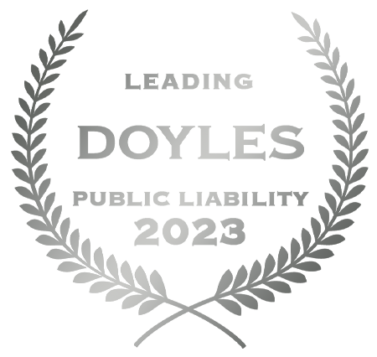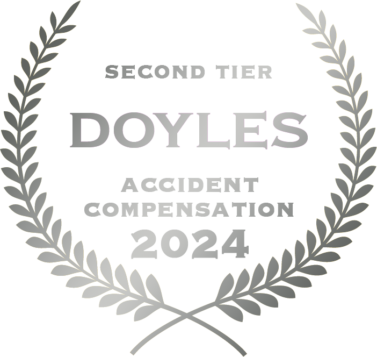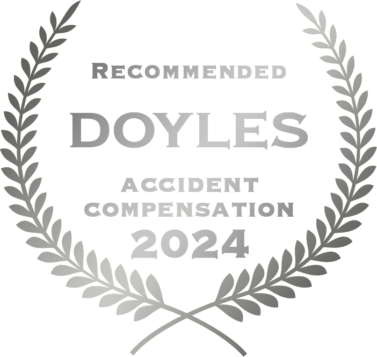
Medical Malpractice Cases Australia.
We enjoy a high standard of medical care in Australia. But diagnosis and treatment of medical conditions doesn’t always go to plan, and medical malpractice cases are an unfortunate reality, no matter where you live.
As with any profession, medical mistakes can happen. But when do medical mistakes become medical negligence or malpractice?
In this article, we explore some medical malpractice cases that we’ve won on behalf of our clients. We’ve included legal insights into why these were cases of medical malpractice, tips on how to tell if you might have a malpractice case, and how to get help with your case.
Types of medical malpractice cases.
Most medical malpractice (also called medical negligence) cases in Australia fall into the following three categories:
In our experience, we find this usually occurs when the medical practitioner fails to obtain a proper history or refer the patient for appropriate investigations to rule out a particular condition.
A typical example is when a patient who presents with chest pain is diagnosed with a relatively minor condition such as gastro-oesophageal reflux disease (GERD), when in fact the patient’s symptoms are caused by a more serious condition such as a heart attack or a pulmonary embolism and no steps are taken to diagnose or treat those conditions.
It’s an unfortunate reality that treatment doesn’t always go to plan, and even the most experienced surgeons and specialists sometimes get it wrong. If an error is made by your surgeon or specialist, the consequences can be significant.
Examples of medical malpractice cases.
Following are four examples of medical malpractice cases we won on behalf of our clients.
Medical malpractice case 1: Injury during termination of pregnancy results in $1.48M payout.
This medical negligence case involved our client Pauline, a healthy mother in her mid-thirties with one daughter, who became pregnant with her second child. However, after a routine check-up revealed complications, Pauline made the heartbreaking decision to terminate her pregnancy at week 18.
Pauline was under general anaesthesia for the termination, which involved suction evacuation of the uterus and extraction of the foetus using forceps. However, during the extraction, she suffered a perforated bowel caused by the use of forceps.
After over two weeks in hospital, Pauline spent six months recovering from her injuries and required two follow-up surgeries over the next two years.
As a result of these injuries and surgeries, Pauline struggles with a range of gastrointestinal issues and anxiety that have significantly impacted her quality of life and restricted her career progression.
We took on Pauline’s medical negligence case and funded several expert medical reports to build a strong case on her behalf. The result was a settlement of $1.48 million paid to Pauline by the insurer.
Call 13 15 15 or chat to us now for free advice
Chat nowFind out how much you can claim.
Get startedMedical malpractice case 2: Delayed diagnosis of appendicitis results in $750k payout.
Medical negligence cases are especially heartbreaking when they involve young patients. Helen was a healthy 21-year-old competitive swimmer and a lifesaver when she suddenly experienced abdominal pain. Her mum took her to see her GP, who ordered an ultrasound and diagnosed her pain as an ovarian cyst. The pain worsened, so Helen’s mum took her to hospital, where she was given morphine, monitored for 24 hours then sent home.
Helen stayed home feeling unwell for the next week, but she was losing weight rapidly. Eventually, the pain became so severe her mum called an ambulance and she was taken back to hospital where she was sent for a CT scan, which showed a ruptured appendix. Helen was treated and spent 10 days in hospital. 11 weeks later Helen had to return to hospital for a follow-up surgical procedure.
Helen continued to suffer health issues, pain, and anxiety long after her treatment had finished, and a reduced capacity to work. She was unable to return to competitive swimming or lifesaving.
We successfully argued that Helen’s ongoing health issues were the result of a delayed diagnosis of appendicitis, and Helen was awarded a compensation settlement of $750,000.
Medical malpractice case 3: Paraplegia caused by delayed diagnosis results in $4.5M payout.
Tragically, medical negligence cases in Australia sometimes result in permanent disability, as was the case with our client, Geoff. Geoff had experienced neck pain for two days when he decided to go to the emergency department, where he was kept overnight, and a CT scan was performed in the morning. He was prescribed pain medication and discharged but told to return to the hospital if the pain became worse, or if he had other symptoms like fever or dizziness.
Concerned about the severity of the neck pain and feeling weakness in his arms and legs, Geoff returned to the hospital the next day. He was diagnosed with a strained neck muscle, and once again discharged, despite feeling extremely unwell.
On the third day, Geoff called a friend to come and help him. His limbs had stopped working and he had collapsed on the floor. Geoff’s friend called an ambulance and by the time it arrived, he was unresponsive. Geoff was diagnosed with a cervical spinal epidural abscess caused by a staph infection and rushed into surgery.
As a result, Geoff was left paraplegic, and now requires a range of treatments, home help and home modifications to maintain some level of independence.
Our medical negligence lawyer successfully argued that the delay in Geoff’s diagnosis by the hospital was the cause of his paraplegia, and he was awarded $4.5 million in compensation to cover his losses and pain and suffering and to support his future care and treatment expenses.
Call 13 15 15 or chat to us now for free advice
Chat nowFind out how much you can claim.
Get startedMedical malpractice case 4: Incorrect diagnosis of a broken wrist results in $1.2M payout.
Incorrect diagnosis of injuries can also lead to medical negligence cases in Australia, as highlighted by one of our cases from 2020.
Ibrahim suffered a wrist injury in a mountain biking accident. He went to see a GP at his local medical centre who referred him for an x-ray, but before receiving the radiologist’s report, the GP inaccurately interpreted the x-ray herself and told Ibrahim that there was no break and to just ice his wrist.
The GP received the report the next day confirming that Ibrahim had sustained a slight break of the scaphoid bone in the wrist, which requires urgent medical treatment in the form of a cast or surgery. The GP instructed her receptionist to call Ibrahim to make an appointment to come in but didn’t tell her that he needed urgent treatment.
Ibrahim’s GP made no attempt to contact him again and almost six weeks after the injury, Ibrahim rang the medical centre to book an appointment as his wrist was very sore. He saw a different GP who referred him for another x-ray, and he was immediately referred to hospital when the GP received the report confirming a severe fracture.
Ibrahim was booked into surgery a few weeks later to unite the broken bones but the surgery was unsuccessful. As a result, Ibrahim could no longer work, ride his bike, or even complete simple tasks like brushing his teeth with his injured wrist.
We put together a comprehensive medical negligence case detailing how the injury will continue to impact Ibrahim’s life and convinced the judge to award $1.2 million in compensation.
Do I have a case for medical malpractice?
Not all mistakes are malpractice – there are inherent risks in treatment and surgeries, and mistakes happen. So how do you know if you have a medical malpractice case?
If you’ve been injured or become ill because your treatment fell below the standard of care and skill that a reasonable professional would have provided in the same circumstances, then it’s likely to be medical malpractice.
Claiming medical malpractice compensation.
If medical malpractice/ negligence has caused you to suffer any loss, such as lost wages or additional treatment or care expenses, then it’s likely you can claim medical negligence compensation.
Claiming medical negligence compensation is an essential part of the journey back to the best possible quality of life. We have a strong track record of successful claims, and we can fund your claim for you so you only need to pay us if you win.
If you or someone you know has suffered an injury or illness that may have been caused by medical negligence, you can call 13 15 15 and have a confidential conversation with a specialist medical malpractice lawyer. There’s no cost for this service. Law Partners also have offices across Sydney and Melbourne areas, including Newcastle and Parramatta.

Shane Butcher
Principal
An accredited specialist in personal injury law and spokesman for the Australian Lawyers Alliance, with the best part of 20 years’ experience in assisting injured Australians to receive everything they’re entitled to.



















